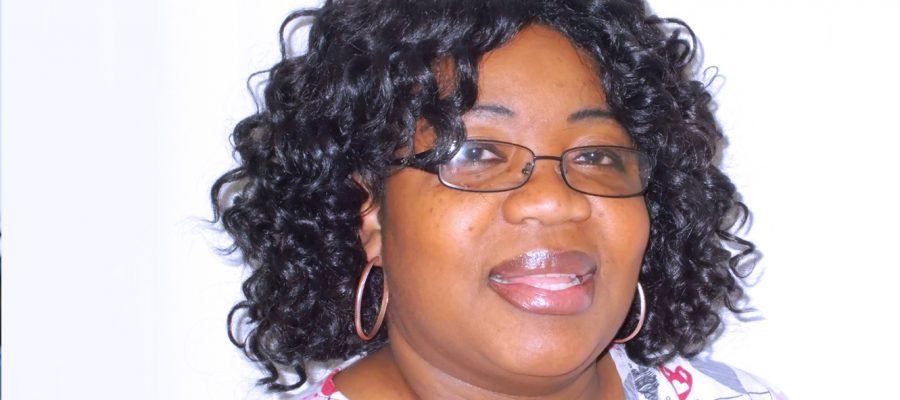 No one wants to think about losing or quitting a job because of the need to care for elderly relatives. Yet, so many will be forced to confront that possibility. Today, over 10 million adult children are providing home care for aging parents. This is defined as helping with toileting, bathing, dressing and eating (also known as Activities of Daily Living, ADLs). But that number doesn’t even account for the millions more Americans who are providing ongoing help with grocery shopping, driving to appointments, assisting with medical care, financial matters and more!
No one wants to think about losing or quitting a job because of the need to care for elderly relatives. Yet, so many will be forced to confront that possibility. Today, over 10 million adult children are providing home care for aging parents. This is defined as helping with toileting, bathing, dressing and eating (also known as Activities of Daily Living, ADLs). But that number doesn’t even account for the millions more Americans who are providing ongoing help with grocery shopping, driving to appointments, assisting with medical care, financial matters and more!
The truth is, the journey alongside someone who needs elderly care is something like a forced march. Whether the onset of disability is sudden and shocking, or comes in a thousand indiscernible ways, you are not in charge of the speed or direction. You don’t so much chart a course as you constantly course correct. As navigators in this passage with our parents or elder loved ones, we know the destination, but we don’t know the distance. How long is this journey; how far are we going? And how do we find a workable path for all involved? This is no easy task. But before you turn and run the other way, leaving this responsibility to siblings and other family members, here are some suggestions to help prepare you for the road ahead.
No Right or Wrong
Seldom is there a clearly understood illness or condition with only one possible model of treatment and care. In fact, among today’s elder care options, you don’t need to make the “right choice” as if there is only one. So, remove that pressure from yourself to get everything right. The fact that you are addressing your aging parent’s needs in an intentionally caring way is already the best start to a good outcome!
Questions to Ask Before Becoming the Primary Family Caretaker
The transition for elder adults naturally filters through the existing relationships among the caretaking family members. To assess what that may mean for your circumstances, you may want to consider these questions.
-
Are you able to objectively observe your family dynamic in an honest way and limit your personal bias where you find it? If so, you’ll be able to at least manage your own expectations and participate in a genuinely constructive way with your siblings or relatives, even if there are unresolved issues from the past. In any case, you need to understand the dynamics as they exist now and work through them, not around them. Read here about keeping the peace between adult siblings of aging parents who disagree about elderly care.
-
Can you assess yourself in the context of your family and the contribution you are prepared to make? During this transitional time for your loved one, you may be dealing with background noise that has built up over many years. After all, you didn’t all get here overnight. There are decades of dynamics in your family group that may be part of your automatic conditioning when communicating with these particular people. Some responses may be perfectly healthy and straightforward. Others, perhaps not. You may have knee-jerk reactions and sensitivities to others opinions, or even the way that they engage with you. The multi-layered history of your family, from birth order to personality types, becomes part of this interactive process. Depending on total number of players involved and the geographic mix, decision making can be a challenge. Then, there’s the perspective that each person brings. Everyone has an opinion or an anecdotal piece of evidence from friends. Try to cut through the noise. Deal only with what is in front of you. Reduce the hypotheticals. When conflict or doubt surfaces, return to the core issues and needs of the elder. And do the work that needs to be done for them by leaving your own stuff at the door. If that is not possible for you, recuse yourself and contribute in some other way. Help can be delivered in many forms and not all of it is hands on.
-
Can you designate a project manager? This should be someone who is in a position to communicate with all involved family members. And it should not default to the oldest adult child, the alpha female, or the one who can’t say no. This is where the four pieces of documentation for handling elder care are helpful if they have been planned and executed ahead of time. The potential project manager should have easy access to email communications and the ability to maintain objectivity and communicate clearly with all involved members. It is helpful if that person is willing and able, and if other dominant players can agree to their role as facilitator. Once in place, have the project manager start the conversation and keep everyone in the loop. Foster transparency in all communications. Don’t plan or discuss anything with some members of the family that excludes others. Close the loop with all members on planning. Then, divide up and delegate tasks. It is just committee work at its most basic, but sometimes it is misunderstood in the mix of family dynamics. In some cases, a Registered Nurse Geriatric Care Manager can step in and provide family advocacy instead.
-
Can you continually prioritize the needs and concerns of your elder? Listen to the aging person, (even if you’re sure you’ve heard everything multiple times!) If your aging parent still has the ability to voice an opinion, acknowledge it…often, if necessary. At this time in their lives, validation is increasingly important. They need to be heard and acknowledged. And they should be reassured that this is all in a day’s work for everyone — that they are not a burden, but a blessing. Finally, listen to siblings or relatives who may have another point of view. This is the time to deal with the questions that have not been discussed yet and work out the kinks in the plan one by one. This is the nature of course correcting. It’s reevaluating and reprioritizing, even after you think you have it all figured out! Remember, there is no right or wrong. You are doing your best by placing your loved ones in good hands, whether you can be there or not.
If you can address these issues, you are on the path to a healthy action plan for your elderly family members. With some research and planning, the pieces will begin to settle into place and together, your family will be able to adjust to the new reality.
Is In Home Care Appropriate For Our Family?
When you find yourself searching for next steps, a Registered Nurse Geriatric Care Manager is a great place to start. Like mentioned above, a RN Geriatric Care Manager has certifications and additional training in the specific needs of the elderly and the ability to coordinate trained care providers to be with your family member to manage daily basic care. This allows you and your family members the ability to provide emotional and social support and to maintain healthy, happy relationships with your elder throughout the length of the journey, wherever it leads.
Pennsylvania Agency of Nurses has been providing In Home Care for nearly 30 years. The fully trained and accredited staff at PAN work with geriatric clients and their families in all stages of illness and decline. Care for those you love is of paramount importance at PAN…and right behind that is understanding families and their need to provide what is necessary with assurance and peace of mind. In Home Care may be just the right answer for your family. Contact Pennsylvania Agency of Nurses for a free in-home assessment and consultation today!
{{cta(‘2f52f924-8d16-47ea-9414-8a32b6e36c45’)}}








